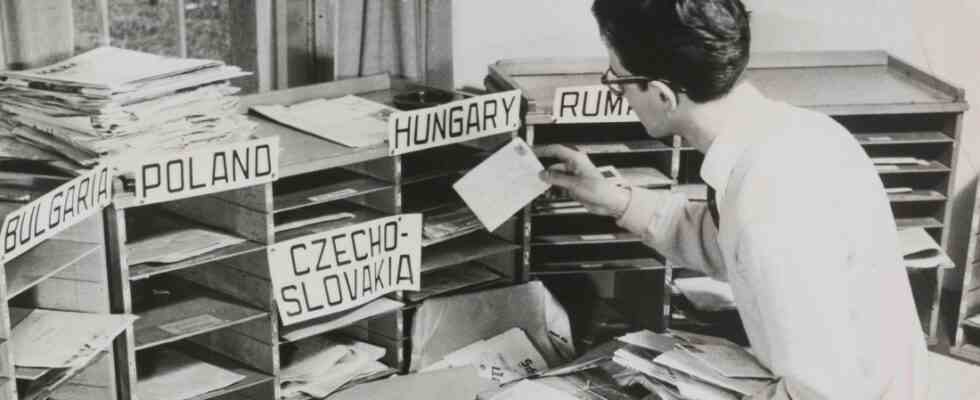The exiles he supplied with mail seemed to him to live in a “backward-looking utopia”. Back in the late 1960s, Etienne Balley was a student at his summer job, whizzing down long corridors on a skateboard and handing out letters to people in the offices. Former fascists were among them, secret monarchists, and certainly some other -ists. His father was one of them.
Etienne Bellay was born in Paris, his father Emil came from Slovakia. As a refugee from the Cold War, he experienced what many of those who are now distancing themselves from Putin’s Russia will experience in a similar way: that compromises between wishes and possibilities when choosing a new place of residence are necessary, but not easy. That the old homeland doesn’t want to disappear from the head at the same time, that the next generation growing up in the new homeland is finding it increasingly difficult to understand. So it was with Emil Bellay, and so with many of his colleagues who worked in the long building where his son Etienne delivered the mail. The site at the English Garden in Munich seemed to him “like a zoo, an animal park”.
The entrance of Radio Free Europe on Oettingenstrasse in Munich.
(Photo: Munich City Museum)
Until the mid-1990s, Radio Free Europe (RFE) and Radio Liberty (RL) were based where students from the Ludwig-Maximilians-University attend political and communication science seminars today. Two radio stations that broadcast their content to the east, to the other side of the Iron Curtain, where independent journalism was not possible. Although: In view of the broadcaster’s financiers, it can at least be doubted whether, especially in the early phase of the Cold War, only “the pure truth” was blown into the airwaves from Munich, as the employee Tibor Molek, who also comes from Slovakia, puts it : The CIA provided the budget well into the 1970s, and the program became more journalistically balanced when the US Congress subsequently paid.
Instead of using jammers, the flow of information is now prevented by blocking the Internet
The memoirs of the staunchly anti-communist journalist Molek and the journalist’s son Etienne Balley, who looks somewhat ironically at the Cold Warriors, are two of five eyewitness reports that can currently be seen and heard in a joint exhibition of the City Museum and the Jewish Museum. There, with “Radio Free Europe. Voices from Munich in the Cold War”, an important piece of city history is illuminated – which has so far remained strangely unilluminated on site, perhaps because the immediately preceding chapters of the history of the former “capital of the movement” absorbed the attention so much.
The broadcasters liked to describe themselves as the “voice of freedom” – at least in the early days, the program was heavily tinged with propaganda.
(Photo: Ernst Jank/Munich City Museum)
The small exhibition, which is nevertheless divided between the two museums, now presents a walk through the history of the broadcasters in the city, including double-agent stories and stories of attacks – as well as small surprises: Peter Demetz, a Germanist who taught at Yale for a long time, also talks in a video in the Jewish Museum about his interlude as culture editor at RFE. Its operation from Munich came to an end in the mid-1990s: After the then US President Bill Clinton thanked the employees in letters signed by hand (“On behalf of a grateful nation: (…) RFE/RL played a crucial role in the development of democratic forces in Eastern Europe and the former Soviet Union”), the stations moved to Prague in 1995.
How history sometimes seems to repeat itself – this aspect makes the small exhibition in the times of the Ukraine war also interesting beyond the view of Munich’s city history: Instead of jammers like back then, the free flow of information is now prevented by internet blocks. And some of the questions that the journalists of Radio Free Europe and Radio Liberty were faced with are similar to those of their colleagues who fled Russia: Do the programs that are supposed to create a counter-public reach an audience at all? How close are you to the reality of his life? And as far as one’s own reality of life is concerned: wouldn’t it perhaps be better to settle down mentally in exile as well?

